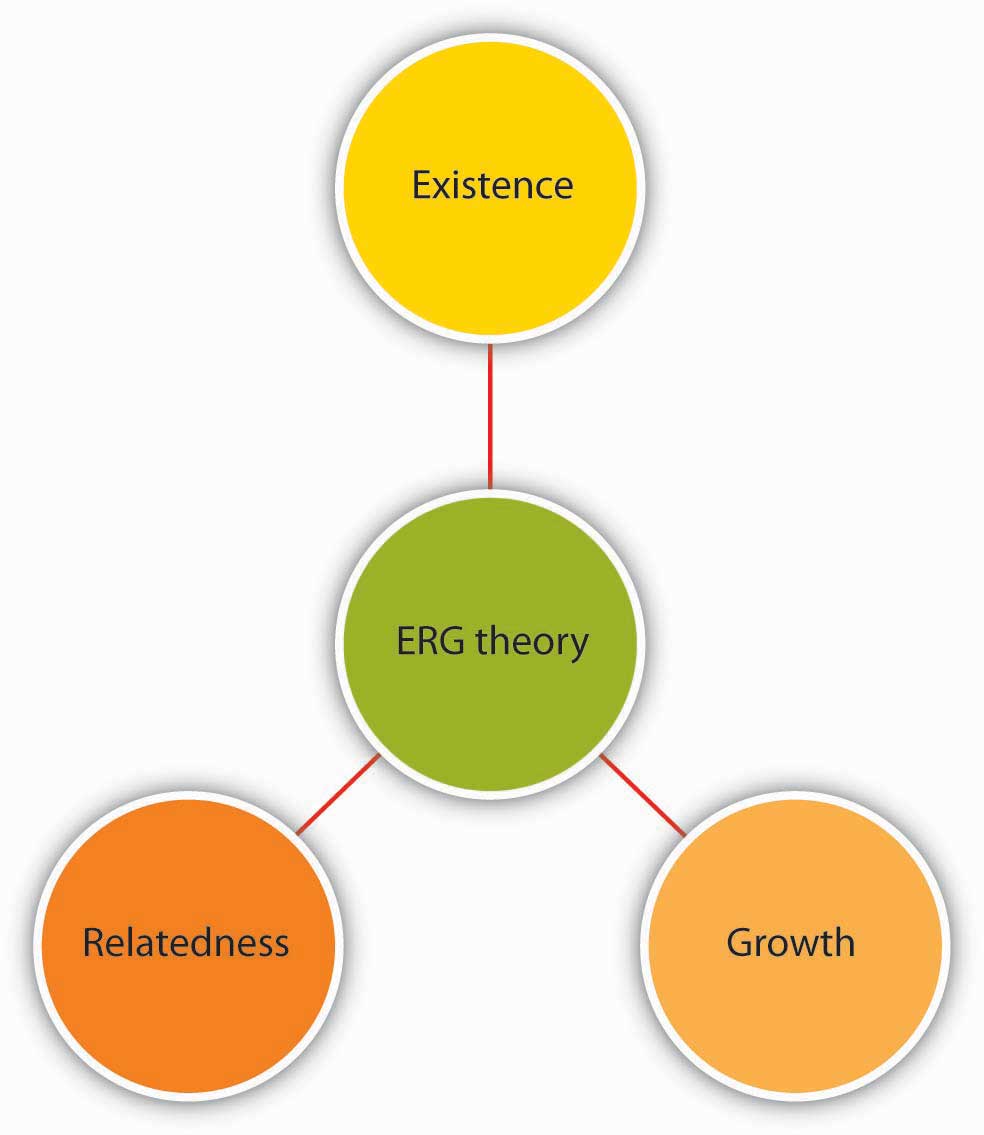All of the Following Are Process Theories of Motivation Except:
It emphasizes internal needs. In essence these theories examine how a persons needs will affect his behavior in order to achieve a goal related to those needs.

Employee Motivation How To Motivate Employees Achievement Motivation Theory Achievement Motivation
All of the following are process theories of motivation EXCEPT.

. 5-All of the following are process theories of motivation except. There are four major process theories. Safety and Security Needs Physiological Need Social Needs Self-esteem Needs Self Actualization Needs.
The three process motivation theories are 1 equity 2 hierarchy of needs and 3 expectancy. McClellands Need Theory 4. Process theories of motivation try to explain why behaviors are initiated.
It emphasizes intrinsic motivation. Urwicks Theory Z 6. SDT The term operant conditioning is used to indicate that the learning process is based on the results produced by a person operating on the.
Self-determination theory SDT seeks to explain not only what causes motivation but also how extrinsic rewards affect intrinsic motivation. A Vrooms expectancy theory of choices. Which among the following is the correct order of Maslows Need Hierarchy Theory of Motivation starting from lower to higher level need.
Temporal motivation theory TMT is an integrative motivational theory developed by Piers Steel and Cornelius J. Process theories of motivation also referred to as cognitive theories focus on how behavior change occurs or how a person comes to act in a different way. Operant conditioning theory equity theory goal theory and expectancy theory.
SDT The term operant conditioning is used to indicate that the learning process is based on the results produced by a person operating on the. However the ERG theory is considered a better and more correct explanation of peoples motivation than Maslows theory. Decentralization and delegation.
If Theory Y holds true an organization can apply the following principles of scientific management to improve employee motivation. Frederick Herzberg approached the question of motivation in a different way. These theories focus on the mechanism by which we choose a target and the effort that we exert to hit the target.
If firms decentralize control and reduce the number of levels of management managers will have more subordinates and consequently need to delegate some responsibility and decision. 17 In SDT extrinsic motivation refers to the performance of an activity in order to attain some valued outcome while intrinsic motivation refers to performing an activity for the inherent satisfaction of the activity itself. Operant conditioning theory equity theory goal theory and expectancy theory.
The theory emphasizes time as a critical motivational factor and focuses on the impact of deadlines on the allocation of attention to particular tasks. McGregors Participation Theory 5. B Adams equity theory.
Porter and Lawlers Expectancy Theory. All of the following are process theories of motivation EXCEPT. Process theories of motivation try to explain why behaviors are initiated.
2 Process Theories of Motivation. 1 operant conditioning 2 equity 3 goal and 4 expectancy. Which of the following IS TRUE about Skinners reinforcement theory.
All of the following are levels of needs in the hierarchy theory except a. It emphasizes internal drives. These theories focus on the mechanism by which we choose a target and the effort that we exert to hit the target.
It concentrates on extrinsic motivation. The content theories of motivation only identify the needs that drive the behaviour of individuals. Describe the process theories of motivation and compare and contrast the main process theories of motivation.
Some of the most important theories of motivation are as follows. These theories focus on the mechanism by which we choose a target and the effort that we exert to hit the. By asking individuals what satisfies them on the job and what dissatisfies them Herzberg came to the conclusion that aspects of the work environment that satisfy employees are very different from aspects that dissatisfy them Herzberg et.
The ERG theory too is not supported by adequate empirical evidence. D Lockes goal setting theory. There is less emphasis on the specific factors or content that causes behavior.
Conflict theory Our decisions are influenced by our needs and emotions Self-regulation theory We attempt to exercise self-control in the face of impulses desires and needs Identity theory Self-labels and perceptions are important sources of motivation Baumeister RF et al 1994. Maslows Need Hierarchy Theory 2. The psychological and behavioral processes that motivate a person to act in a particular way are referred to as process theories of motivation.
Describe the process theories of motivation and compare and contrast the main process theories of motivation. Herzbergs Motivation Hygiene Theory 3. The three goals of goal theory and achievement motivation include all of the following EXCEPT.
TMT argues that as a deadline for completing an activity nears the perceived usefulness or benefit of that activity. These theories are typically used in a workplace context and there are several theories. Vrooms Expectancy Theory 8.
C Herzbergs two-factor theory. All of the following are process theories of motivation EXCEPT. The theories center its attention on the cognitive processes underlying an individuals level of motivation.
Motivation multiple choice questions is the set of forces that energize direct and sustain behavior. All of the following are content theories EXCEPT. According to expectancy theory all of the following are major factors that determine an employees motivation EXCEPT _____.
Process theories of motivation try to explain why behaviors are initiated.

Theory X And Theory Y By Mcgregor As Vicious Circle Strengthening Effect

14 3 Need Based Theories Of Motivation Principles Of Management

Vroom S Expectancy Theory Of Motivation Agile Mercurial Motivation Theories Learning And Development
No comments for "All of the Following Are Process Theories of Motivation Except:"
Post a Comment